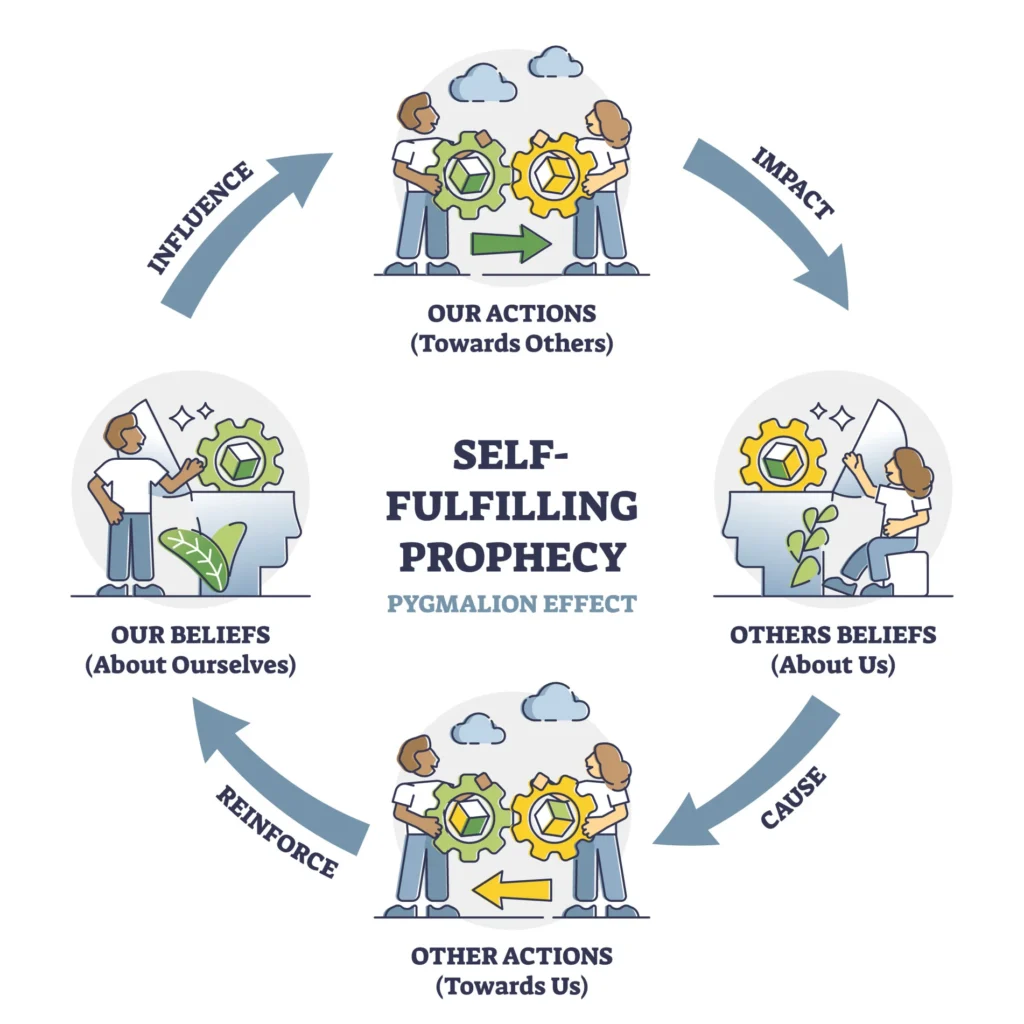Have you ever been at a crossroads, faced with the challenge of holding onto your faith in people despite facing profound disappointments? I’ve navigated these waters myself, encountering moments that tested my beliefs to their core. One particularly vivid memory involves, Ned, a coworker whose behavior seemed to embody the very essence of toxicity. This wasn’t about the occasional bad day we all stumble through but a relentless pattern that pushed me to my limits.
Dealing with such a challenging presence in my daily life forced me to look inward, to question and reaffirm my commitment to seeing the good in others. It was a journey that required more than just patience; it demanded a deep, intentional effort to maintain my faith in the fundamental goodness of people, to continue leading and interacting from a place of hope and empathy.
This personal experience brought into sharp relief a universal truth: our perspective on humanity, the lens through which we choose to see the world around us, plays a pivotal role in shaping our relationships and daily interactions. When we approach others with trust and openness, we often unlock the best in them. But when doubt and suspicion creep in, it can lead us down a much darker path. So, how do we keep our hearts open and our faith in humanity intact, even when faced with seemingly endless challenges?
This is a conversation about more than just surviving amidst negativity; it’s about thriving, leading with compassion, and fostering connections that lift us all higher. Because in the end, choosing to believe in the goodness of others reflects our own inner strength and character.
The Power of Self-Fulfilling Prophecies
At the heart of every interaction, every expectation, lies a powerful psychological phenomenon known as the self-fulfilling prophecy. This is the idea that what we expect from people can actually lead them to behave in ways that confirm our expectations. It’s like setting the stage for a play where the actors end up living out the roles we’ve mentally assigned them, often without us even realizing it.
Imagine going into a situation expecting the best from someone. This belief can subtly shape our behavior toward them, encouraging a positive response. On the flip side, if we brace ourselves for disappointment, our actions might convey distrust or negativity, eliciting the very response we feared. The implications of this for human behavior and relationships are profound. It highlights just how much our beliefs and expectations can influence the dynamics of our interactions, often setting a course for either success or failure.

Case Study: The Pygmalion Effect
One of the most striking examples of self-fulfilling prophecies at work is seen in what’s known as the Pygmalion Effect. In a landmark study conducted in the 1960s, researchers Rosenthal and Jacobson told teachers at an elementary school that certain students were expected to excel academically, showing remarkable intellectual growth over the year. These students, dubbed “bloomers,” were actually chosen at random. Yet, influenced by these expectations, the teachers’ interactions with the “bloomers” changed, often in subtle ways. They offered more encouragement, more feedback, and more opportunities to participate in class.
The result? By the end of the study, these randomly selected students showed significant academic improvement, surpassing their peers. This wasn’t magic. It was the power of belief, the teachers’ belief, translated into actions that profoundly impacted their students’ performance and self-confidence.
This phenomenon illustrates the importance of our beliefs and expectations in shaping others’ behaviors and, ultimately, their futures. When we expect greatness, we act in ways that can bring that potential to life. Conversely, low expectations can stifle growth and achievement, trapping people in a cycle of underperformance and disappointment.
The Pygmalion Effect underscores a critical message: the beliefs we hold about others have the power to become reality. It challenges us to reflect on our own expectations and to recognize the role we play in influencing the paths of those around us. By choosing to see and expect the best in people, we not only foster their growth but also contribute to a more positive, empowering environment where everyone has the chance to thrive.
Reflecting on the concept of self-fulfilling prophecies brings to mind my experience with Ned. His story is a testament to the shadow side of this psychological phenomenon. Ned approached his interactions with a level of skepticism and negativity that seemed to confirm his worst expectations about others. This mindset not only influenced his daily experiences but also perpetuated a cycle of conflict and misunderstanding with those around him.
Seeing the consequences of Ned’s outlook was a pivotal moment for me. It served as a stark reminder of the potential impact of my own attitudes. The negativity I was beginning to absorb from Ned threatened to skew my perceptions and interactions in a similar manner. I realized that if I didn’t actively address this shift in my outlook, I risked falling into the same pattern of negativity and conflict that had ensnared him.
Understanding that our perspective can either trap us in a cycle of negativity or uplift us with a positive, affirming outlook, I embraced the latter. This choice, spurred by the stark contrast to Ned’s negative cycle, has become a cornerstone in my commitment to nurturing meaningful, positive connections, underscoring the transformative power of focusing on the potential for good in others.

The Impact of Negative Experiences
Our journey through life’s highs and lows often challenges our faith in humanity, sometimes leading us toward skepticism or a hardened outlook. This shift is not merely about changing opinions but can significantly impact our mental health and social interactions. These changes can be understood through the concepts of priming and schemas—psychological mechanisms that influence how we perceive and interact with the world around us.
Priming occurs when an experience or exposure to a certain stimulus influences our response to a subsequent stimulus. For instance, consistent negativity from someone like Ned can prime us to expect, and even perceive, negativity in unrelated situations. This priming effect can skew our view of people and events, making us more likely to brace for disappointment or conflict, even when none might be warranted. This skewed perspective can inadvertently lead to negative self-fulfilling prophecies in our other relationships, as we begin to act in ways that unwittingly invite the very negativity we seek to avoid.
Schemas are like the mental shortcuts we use to make sense of the world around us. They are the frameworks within which we organize and interpret the vast amounts of information we encounter daily. Built from our past experiences, schemas guide how we perceive new situations and interactions, influencing our expectations and reactions.
For example, if you’ve had repeated negative experiences with authoritative figures, you might develop a schema that leads you to expect similar outcomes from all authority figures. This can result in a default stance of skepticism and distrust whenever you encounter someone in a position of power, regardless of their actual intentions or behavior. Your schema simplifies your response to complex situations based on your past, but it can also limit your openness to positive experiences that contradict your established beliefs.
Encounters with negative individuals, especially in a professional setting, can further reinforce these schemas. If you work with a pessimistic coworker who consistently expects the worst from others and projects a toxic attitude, this can strengthen your schema that people are generally untrustworthy or negative. This reinforced schema then colors how you view and interact with others, potentially leading to a cycle where your skeptical and distrustful approach elicits a defensive or negative response, thus confirming your original expectation. This cycle is a classic example of a self-fulfilling prophecy.
The influence of someone as overtly toxic as Ned demonstrates how a negative person can alter our faith in humanity, even in adulthood. His continuous display of negativity not only affected the atmosphere but also influenced my own schemas about people. It became a daily reminder of how easily one’s perspective can be tainted, urging me to actively resist adopting a similarly jaded view.
Recognizing the effects of priming and the power of our schemas is crucial in maintaining a positive outlook. It’s about being aware of how our experiences, especially those involving negative individuals, can subconsciously shape our expectations and reactions. Overcoming these ingrained biases demands a conscious, deliberate effort to focus on the positive aspects of humanity, challenging our schemas to accommodate a more balanced view of others.

Strategies for Maintaining Faith in Humanity
In a world that often feels overwhelmed by negativity, maintaining or rebuilding our faith in humanity is crucial for our mental and emotional well-being. The journey isn’t always easy, especially after experiences that shake our trust. However, with intentional effort and a few practical strategies, it’s possible to foster a more positive outlook on the world and its inhabitants.
Cultivating Empathy and Understanding
Empathy is the heart’s way of reaching out and connecting with others, even when our minds struggle to see eye to eye. By striving to understand people’s experiences and emotions, we can bridge gaps created by misunderstandings and conflicts. Start by listening actively and without judgment. Try to see the world from their perspective, recognizing that everyone has a story that shapes their actions and beliefs. This practice can soften our hearts and open our minds, allowing us to maintain faith in people even when we disagree.
Engaging in Positive Interactions and Seeking Out Positive Stories
The news cycle and social media can often highlight the worst of humanity, skewing our perceptions and feeding into a cycle of negativity. Counteract this by consciously engaging in positive interactions and seeking out stories of kindness, resilience, and human spirit triumphing over adversity. Surround yourself with positive influences—people who uplift you and remind you of the good in the world. Volunteer, join community groups, or participate in events that align with your values. These actions can reinforce your belief in the inherent goodness of people.
Practicing Mindfulness and Challenging Negative Assumptions
Mindfulness can be a powerful tool in managing our reactions and emotions. By staying present and aware, we can observe our thoughts and feelings without immediately acting on them. This pause gives us the space to challenge negative assumptions and consider alternative interpretations. When faced with negativity, ask yourself if there’s another way to view the situation. Could there be underlying factors at play? By cultivating this habit, we can prevent negative experiences from overshadowing our faith in humanity.
Emphasizing the Role of Forgiveness and Second Chances
Holding onto grudges and resentment can poison our outlook and hinder our ability to see the good in others. Forgiveness, while challenging, can liberate us from the weight of past hurts. It doesn’t mean condoning harmful behavior or forgetting the pain caused; rather, it’s about releasing the hold that these experiences have on our heart. Give people the opportunity to change and grow by offering second chances when appropriate. Remember, everyone makes mistakes, and forgiveness can pave the way for deeper understanding and connections.
Conclusion
In this article, we’ve navigated the intricate ways our beliefs and expectations shape our interactions, highlighted by the profound effects of self-fulfilling prophecies, priming, and schemas, as well as the real-world implications seen through the story of Ned. This exploration underlines the power of our perspectives in coloring our relationships and the environments we inhabit. By adopting strategies such as cultivating empathy, engaging in positive interactions, practicing mindfulness, and embracing forgiveness, we discover practical steps toward fostering a more optimistic view of humanity.
I encourage you now to pause and reflect on your own journey through the lens of empathy and openness. It’s an invitation to re-evaluate how we perceive and interact with those around us, recognizing the potential for change and growth within ourselves and others. Maintaining or rebuilding faith in humanity isn’t an effortless endeavor—it’s a choice, a commitment to viewing the world and its inhabitants with hope and compassion.
Let’s not end the conversation here. I urge you to share your stories and strategies for nurturing faith in people in the comments below. Whether it’s through personal experiences that resonate with the themes we’ve discussed or innovative ways you’ve found to remain positive, your contributions can inspire a collective movement towards a kinder, more empathetic society. Together, let’s champion a renewed faith in humanity, proving that through understanding and connection, we can make a meaningful difference.

